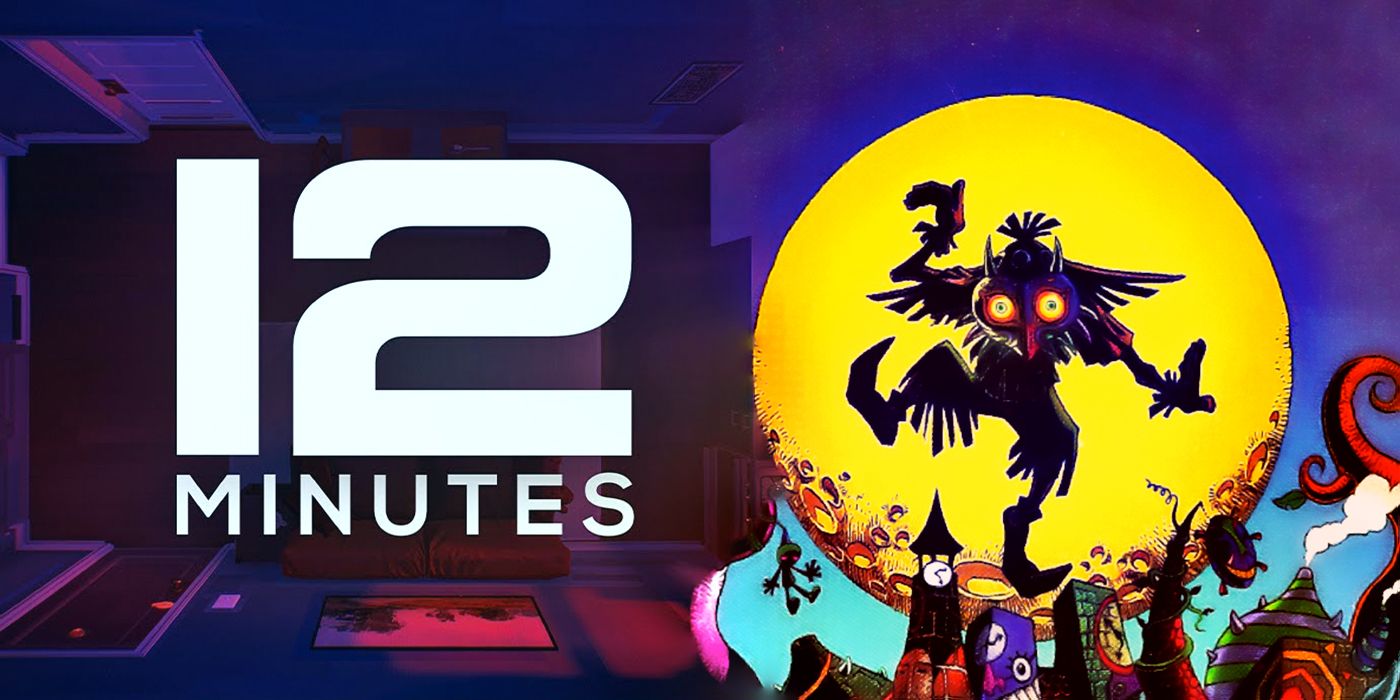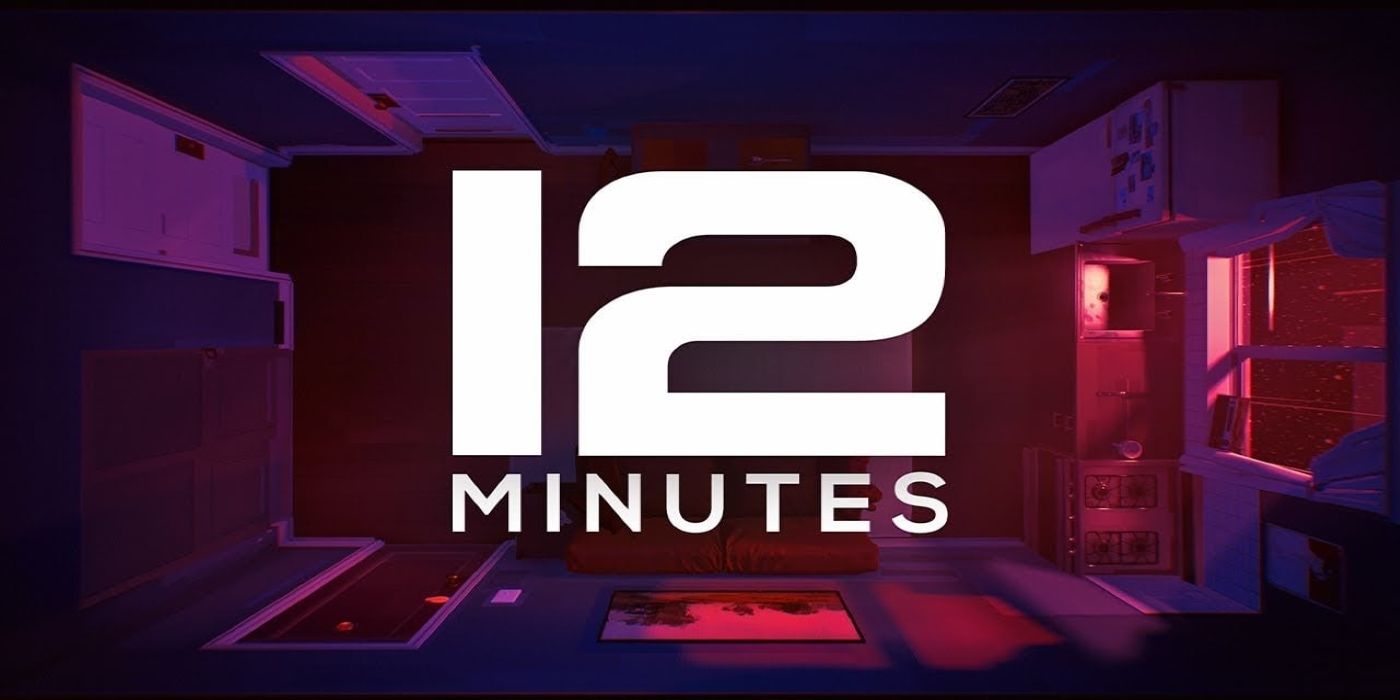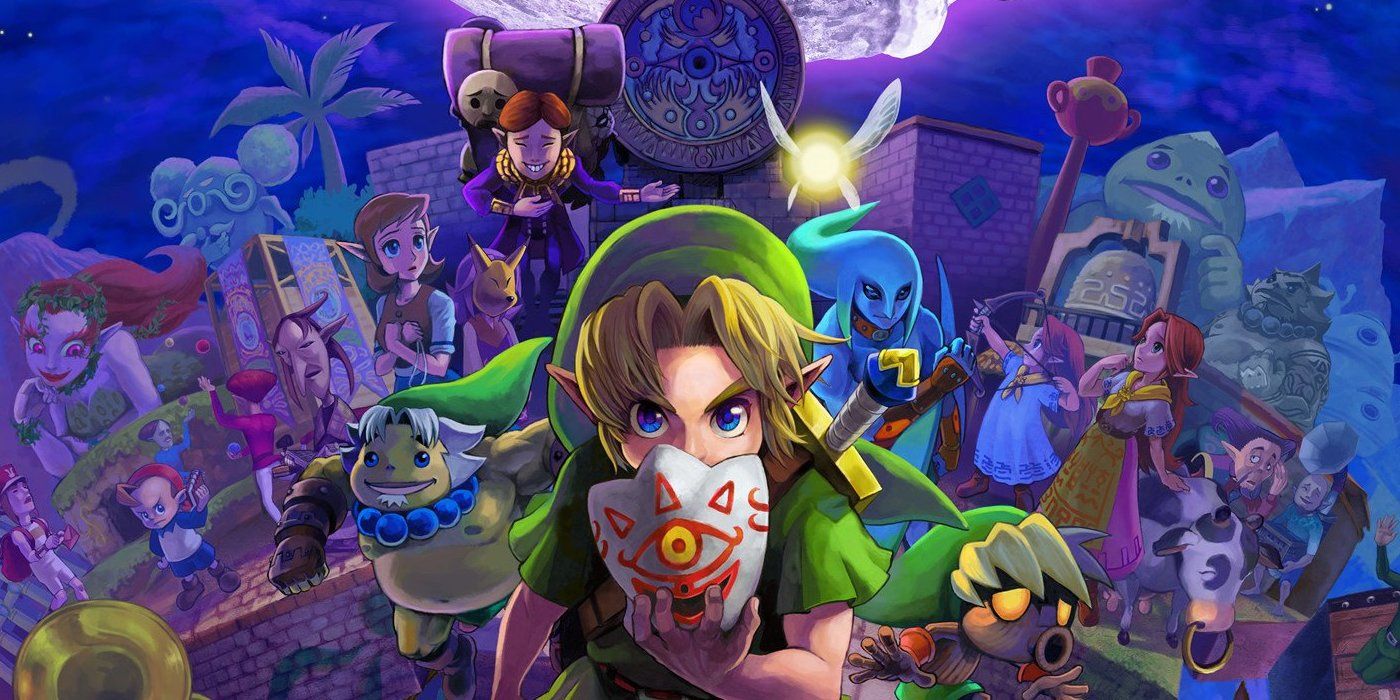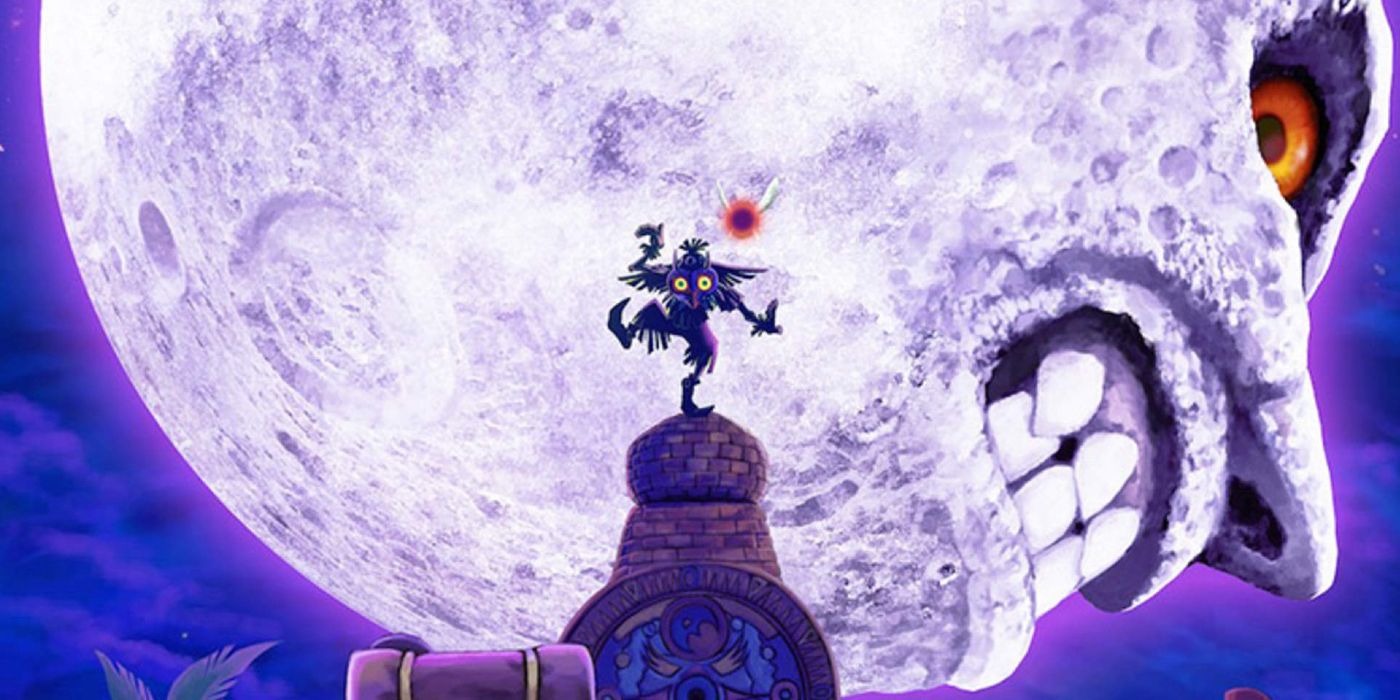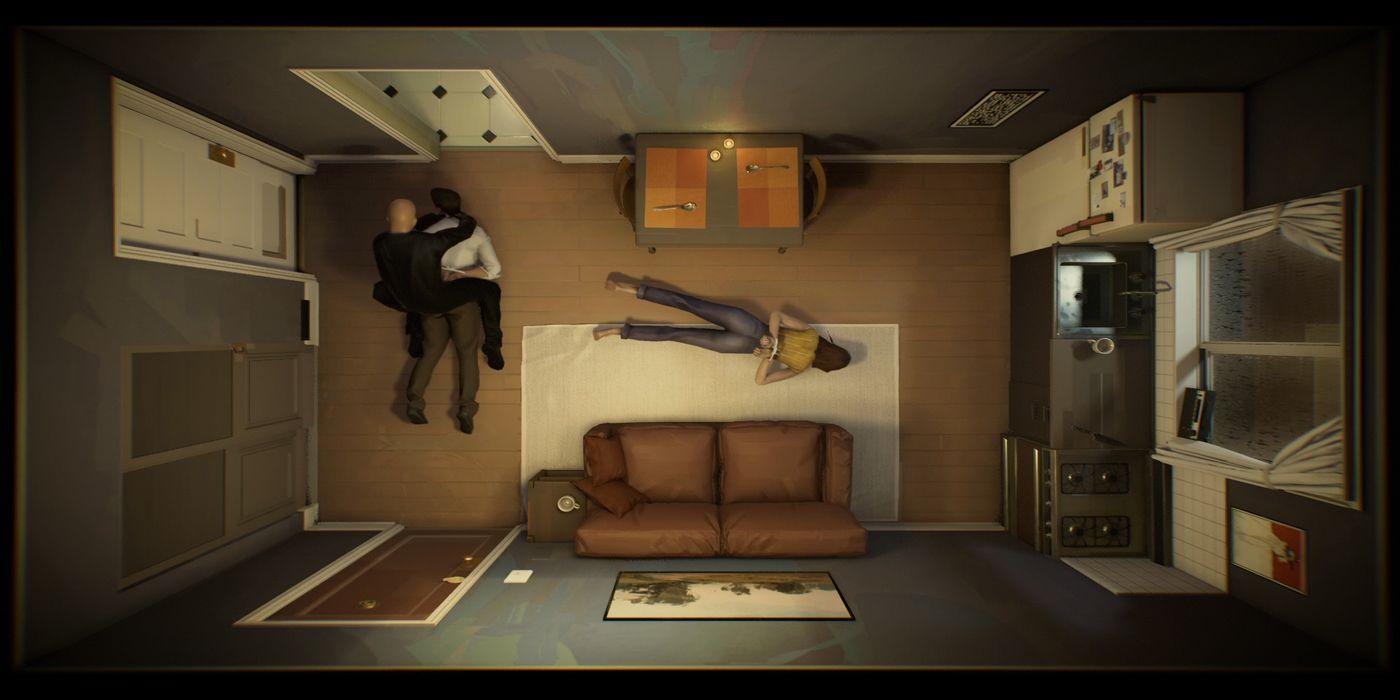Luis Antonio, former Rockstar employee, is currently working on independent time-loop interactive thriller 12 Minutes. The game focuses on a tiny fragment of a couple's date night, which goes disastrously wrong. As the terrible events come to a head, the husband falls backwards through time, regaining consciousness 12 minutes previously. What follows is a tense looped event sequence that players can interrupt with their decisions. Players have to scramble to figure out the optimal path through potential events, with different timelines and endings that play out depending on player choice. This already intriguing set of mechanics exists alongside a all-star cast, including James McAvoy, Daisy Ridley and Willem Dafoe.
However, 12 Minutes is not the first game with time-loop mechanics. Before this upcoming title, the most famous example of a Groundhog Day-style game was The Legend of Zelda: Majora's Mask. As such, it is only natural to draw comparisons between the new prestige thriller game and the classic Nintendo icon. Not only do these games share a time loop mechanic, but the way this loop creates a story and set of themes also seem to be strikingly similar.
12 Minutes Is Another Groundhog Day Game
The most immediate comparison between 12 Minutes and Majora's Mask is obviously how time loops. In both games, a disastrous event occurs, the protagonist is launched back in time. A loop plays out, the end of which resets the player back to the original point with knowledge of what comes next. As the only character with this terrible foresight, players must go through each loop to try and break the cycle.
The Legend of Zelda: Majora's Mask is the second of the mainline 3D Zelda titles. Although the title is often debated as Ocarina of Time versus Majora's Mask, it still received considerable praise at release for its innovative mechanics. No Zelda game before it had featured the signature three-day loop, and its higher difficulty really set the title apart. Of course, the comparatively gruesome content of 12 Minutes is different to any Legend of Zelda game, even Majora's Mask. However, this shared looping mechanic (and the associated fated disaster) make the two very similar in certain themes and stakes.
12 Minutes And Majora's Mask Both Have High Stakes
Making a game's central mechanic a horrific future event has some very obvious effects on its tone. In previous Zelda games, players have to fight through colorful creatures to confront a big pig monster and save a princess. Majora's Mask sets its stakes by dropping a moon on the planet. Then it drops the moon again. Every 54 minutes of play time.
12 Minutes employs exactly the same narrative technique. The player character sits through their wife's murder in real time, and then is forced to confront it ad infinitum. Unsurprisingly, both cycles can end, but it certainly takes longer than three in-game days and 12 minutes respectively. 12 Minutes takes about 2o hours to complete — names can be misleading.
The repeating death of an entire country and of a spouse seem like very different stakes. However, for the target demographics these stakes are more similar than they might appear.
For a younger gamer, the direct, personal death of a family member (and the reliving of said event) would be far too devastating. The more abstracted disaster of the moon-fall, while still horrifying, is not as direct and personal. For an older gamer, who has more context with regards interpersonal relationships and partnerships, the death of a loved one is a relatable and all-encompassing grief. A death like this can feel as terrible as the exaggerated tragedy present in fiction like Majora's Mask. This type of traumatic narrative loop mechanic could leave 12 Minutes as one of the saddest stories in games.
The Gameplay Is Open, Not Obvious
More so than other games in the Legend of Zelda series, Majora's Mask is fairly challenging. Ocarina of Time takes a much more player-accessible approach, but the imposing three day deadline and slightly more obtuse mechanics make Majora's Mask one of the most difficult Nintendo games.
This is the driving philosophy behind 12 Minutes as well. The game's creator has stated that there will not be quest or goal prompts, and that the gameplay is purposefully left open for player input, in the style of more classic point and click adventures. Players need to take initiative in this title, or else the loop will just keep playing.
Decisions In Each Loop Change The Ending
Another element of Majora's Mask that sets it apart from other games in its series is that the people helped and items collected directly effect the kind of ending gamers see. There are two main endings, success or failure. Alongside that, depending on who players help out, the ending cutscenes that play are different. The weaving of the game's time mechanics into the plot was so impressive that even Breath of the Wild 2 will likely use time travel.
In 12 Minutes, the time travel mechanics have a similar narrative impact. The consecutive loops allow for players to accrue many different items, which in turn modify the playthrough and the potential endings. It looks like the focus on the cast of 12 Minutes means that the performances will be very important. As such, the narrative consequences changing due to the actions in each time loop is no surprise at all.
12 Minutes will release on PC, Xbox One and Xbox Series X/S in 2021.

